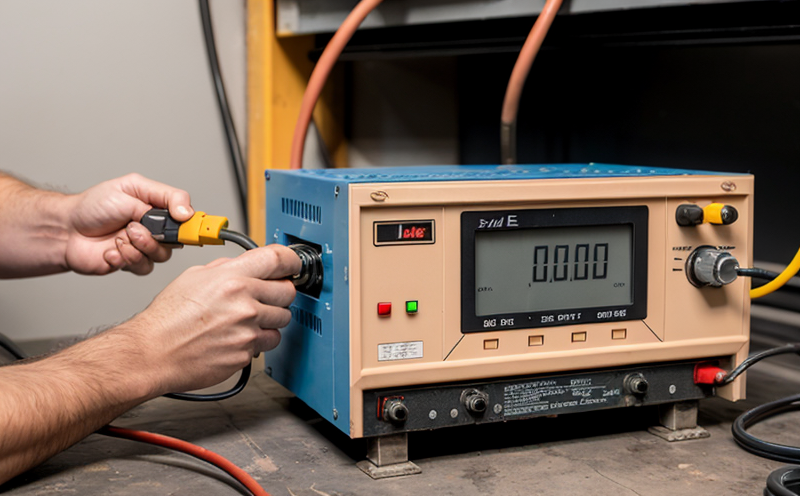JEDEC JESD22-B114 Die Cyclic Stress Electrical Testing
The JEDEC Standard JESD22-B114 is a widely recognized protocol for die-level electrical and functional testing, which evaluates the stress resistance of semiconductor dies under cyclic voltage and current conditions. This testing method is crucial for ensuring that semiconductor devices can withstand the mechanical stresses encountered during assembly and operation without compromising their functionality or integrity.
The standard applies to a variety of semiconductor packages including flip-chip (FC), leaded chip carrier (LCC), ball grid array (BGA), and ceramic flatpack (CSP) types. It simulates real-world conditions that the device may face, such as thermal cycling, mechanical shock, and vibration, which can affect the electrical performance of the die.
The testing procedure involves applying cyclic stress to the die using a specialized test fixture and environmental chamber. The voltage and current are cycled over predefined parameters, simulating the operational conditions that the device will encounter during its lifecycle. This helps in identifying potential weaknesses or failures that may not be evident under static conditions.
The JESD22-B114 protocol is designed to test for various failure modes including short circuits, open circuits, and insulation breakdown. By subjecting the die to these cyclic stresses, it ensures that only robust devices pass the test, thus enhancing product reliability and quality.
Compliance with this standard is particularly important in industries reliant on high-performance electronics, such as automotive, aerospace, and consumer electronics. It guarantees that semiconductor components can operate reliably under harsh environmental conditions without compromising safety or performance.
Quality and Reliability Assurance
The JEDEC JESD22-B114 test is an integral part of the quality assurance process for semiconductor manufacturers. By incorporating this standard into their testing protocols, companies can ensure that their products meet the highest industry standards and are reliable under real-world conditions.
The testing procedure involves a series of cyclic stress cycles designed to simulate the operational environment of the device. Each cycle includes a specific voltage and current profile, which is applied for a defined duration before being reversed in polarity or magnitude. This process continues until the die reaches its specified number of cycles or fails.
The test results are meticulously recorded and analyzed to ensure that each die meets the required specifications. Any deviations from the expected performance can be traced back to specific parameters, allowing for targeted improvements in the manufacturing process. This not only enhances product reliability but also reduces production costs by eliminating substandard components early in the development cycle.
Moreover, compliance with JESD22-B114 facilitates smoother regulatory approvals and market entry, as it demonstrates a commitment to quality and safety standards recognized worldwide. This is particularly important for companies operating in competitive markets where reliability and performance are key differentiators.
Customer Impact and Satisfaction
The implementation of JEDEC JESD22-B114 testing significantly impacts customer satisfaction by delivering high-quality, reliable semiconductor products. By ensuring that the devices meet stringent stress resistance criteria, customers can expect consistent performance across different environmental conditions.
Customers in industries such as automotive and aerospace, where product reliability is paramount, benefit greatly from this testing method. It allows them to trust that their components will perform reliably under extreme conditions, thereby reducing the risk of failures that could lead to costly downtime or safety hazards.
The detailed test reports provided by our laboratory offer customers a comprehensive understanding of the performance and durability of each die tested. This transparency fosters trust between the manufacturer and its clients, reinforcing long-term relationships built on reliability and quality.
Furthermore, the testing process contributes to continuous improvement in product design and manufacturing processes. By identifying weaknesses early in the development cycle, manufacturers can address these issues before they become critical defects, leading to more robust products that meet customer expectations.
Benefits
- Ensures robustness of semiconductor dies against mechanical stress during assembly and operation.
- Identifies potential failure modes early in the development process, enhancing product reliability.
- Promotes compliance with international standards, ensuring quality across different markets.
- Reduces warranty claims and recalls by identifying faulty components before they reach end-users.
- Supports continuous improvement of manufacturing processes through detailed test data analysis.





